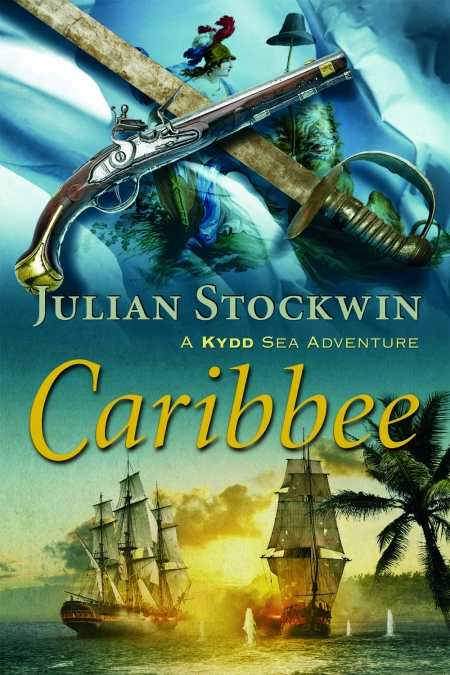Caribbee
A Kydd Sea Adventure
Caribbee is a melding of good fiction and historical fact enlivened with colorful, well-drawn characters.
A plot rich in sailing lore, pirate raids, vengeful spies, and shipboard discontent enlivens Julian Stockwin’s fourteenth book in the Thomas Kydd series, Caribbee: A Kydd Sea Adventure.
Assigned to the Leeward Islands of the early nineteenth-century Caribbean, Captain Kydd commands L’Aurore, a frigate of the British Royal Navy. Returning to this idyllic archipelago rekindles memories of youthful experiences for Kydd and his trusted friend and confidential secretary, Nicholas Renzi. Their ship cruises the waters, searching for pirate ships intent on robbing British vessels of cane sugar destined for European markets. Suspected French naval presence in the islands may mean retaliatory action spurred by Admiral Horatio Nelson’s victory at Trafalgar. A parallel plot involves the tyrannical captain of another British frigate whose crew threatens mutiny.
In pursuit of French ships during a hurricane, a shattered mast leaves L’Aurore at the storm’s mercy. Stockwin skillfully describes the high drama of captain and crew working to save themselves and the ship. Using a seaman’s instinctual sixth sense, Kydd pictures the tautly spread awning on the ship’s quarterdeck while at anchor and realizes it can be used as a sail.
Colorful, well-drawn characters of all types contribute to this book’s appeal. Stockwin’s skill with characterization serves him equally well in the female character of Madame Louise Vernou, a friend of Renzi’s from earlier visits to Martinique. Renzi enlists Louise’s help, and her determined spirit helps them infiltrate the elusive French spy ring. Seeing the local grocer taking food daily to the nearby island of Marie Galante, Louise suggests a plan: “I will supply them with the gourmandises every French man desires. You will be my porter.”
Elements of good fiction and historical fact meld in Caribbee. Logical scene transitions, subtle foreshadowing of events, believable character interaction, and a satisfying conclusion to the plot all contribute to the book’s readability. The author’s endnotes explain the political and cultural atmosphere of the English Caribbean islands of Georgian times, as does a glossary of words related to naval and economic activities.
Reviewed by
Margaret Cullison
Disclosure: This article is not an endorsement, but a review. The publisher of this book provided free copies of the book to have their book reviewed by a professional reviewer. No fee was paid by the publisher for this review. Foreword Reviews only recommends books that we love. Foreword Magazine, Inc. is disclosing this in accordance with the Federal Trade Commission’s 16 CFR, Part 255.

